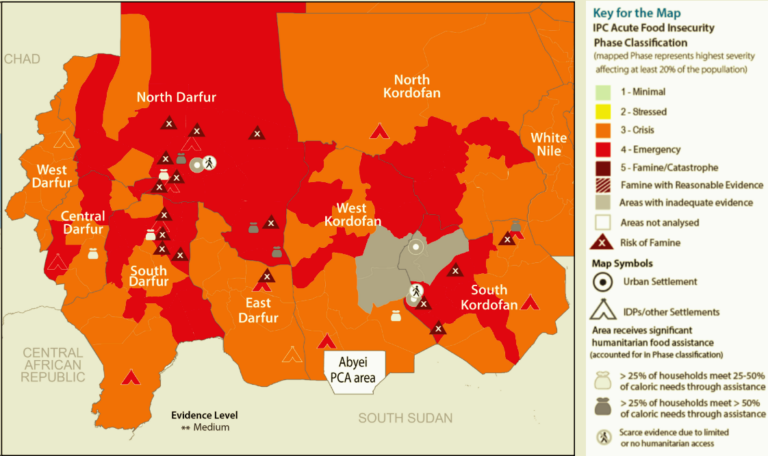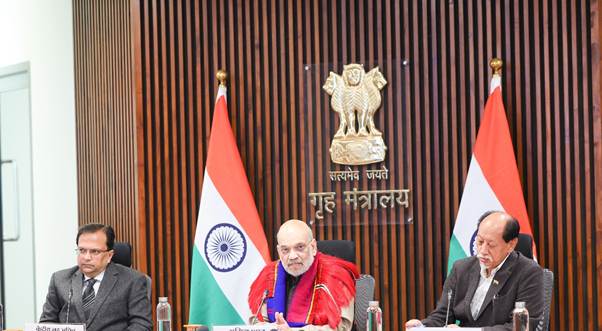
[the_ad_placement id=”adsense-in-feed”]
Bharatiya Kisan Union leaders at a meeting today
New Delhi: Amidst protests by farmers’ bodies on streets of Uttar Pradesh, Uttarakhand, Punjab and Haryana, the government on Monday introduced in Lok Sabha, three bills to replace ordinances promulgated on June 5, 2020, which it claimed were aimed at “transformation of agriculture and raising farmers’ income”.
These bills are:
The Farmers’ Produce Trade and Commerce (Promotion and Facilitation) Bill, 2020
The Farmers (Empowerment and Protection) Agreement of Price Assurance and Farm Services Bill, 2020
The Essential Commodities (Amendment) Bill, 2020
[the_ad_placement id=”content-placement-after-3rd-paragraph”]
While Union Minister of Agriculture & Farmers’ Welfare Narendra Singh Tomar introduced the first two bills, Minister of State for Consumer Affairs, Food & Public Distribution, Raosaheb Patil Danve introduced The Essential Commodities (Amendment) Bill, 2020 in the Lok Sabha.
Seeking permission of the Chair to introduce the Bills, Narendra Singh Tomar said that the measures contained therein would enable barrier-free trade in agricultural produce, and also empower farmers to engage with investors of their choice. He said that these steps were only the latest in a series of measures taken by the Government, which showed its continuous commitment to championing the cause of welfare of the farmers of India.
The government claims that the Farmers’ Produce Trade and Commerce (Promotion and Facilitation) Bill, 2020 would provide for the creation of an ecosystem where the farmers and traders enjoy the freedom of choice relating to sale and purchase of farmers’ produce which facilitates remunerative prices through competitive alternative trading channels to promote efficient, transparent and barrier-free inter-State and intra-State trade and commerce of farmers’ produce outside physical premises of markets or deemed markets notified under various State agricultural produce market legislations; to provide a facilitative framework for electronic trading and for matters connected therewith or incidental thereto.
According to the ministry, farmers in India suffered from various restrictions in marketing their produce. There were restrictions for farmers in selling agri-produce outside the notified APMC market yards. The farmers were also restricted to sell the produce only to registered licensees of the State Governments. Further, barriers existed in free flow of agriculture produce between various States owing to the prevalence of various APMC legislations enacted by the State Governments. “This legislation is a historic-step in unlocking the vastly regulated agriculture markets in the country. It will open more choices for the farmer, reduce marketing costs for the farmers and help them in getting better prices. It will also help farmers of regions with surplus produce to get better prices and consumers of regions with shortages, lower prices,” a ministry handout stated.
As for the Farmers (Empowerment and Protection) Agreement of Price Assurance and Farm Services Bill, 2020, the government is of the view that it would provide for a national framework on farming agreements that protects and empowers farmers to engage with agri-business firms, processors, wholesalers, exporters or large retailers for farm services and sale of future farming produce at a mutually agreed remunerative price framework in a fair and transparent manner and for matters connected therewith or incidental thereto.
“Indian agriculture is characterized by fragmentation due to small holding sizes and has certain weaknesses such as weather dependence, production uncertainties and market unpredictability. This makes agriculture risky and inefficient in respect of both input & output management. This legislation will transfer the risk of market unpredictability from the farmer to the sponsor andalso enable the farmer to access modern technology and better inputs. It will reduce cost of marketing and improve income of farmers. Farmers will engage in direct marketing thereby eliminating intermediaries resulting in full realization of price. Farmers have been provided adequate protection. Effective dispute resolution mechanism has been provided for with clear time lines for redressal,” the ministry stated.
Furthermore, with regards to the Essential Commodities (Amendment) Bill, 2020, the government says it seeks to remove commodities like cereals, pulses, oilseeds, edibleoils, onion and potatoes from the list of essential commodities. “This will remove fears of private investors of excessive regulatory interference in their business operations.The freedom to produce, hold, move, distribute and supply will lead to harnessing of economies of scale and attract private sector/foreign direct investment into agriculture sector.”.
The government explains that while India has become surplus in most agri-commodities, farmers have been unable to get better prices due to lack of investment in cold storage, warehouses, processing and export as the entrepreneurial spirit gets dampened due to Essential Commodities Act. Farmers suffer huge losses when there are bumper harvests, especially of perishable commodities. The legislation will help drive up investment in cold storages and modernization of food supply chain. “It will help both farmers and consumers while bringing in price stability. It will create competitive market environment and also prevent wastage of agri-produce that happens due to lack of storage facilities, it stated”.
Farmers Protest
However an influential farmers’ body, the Bharatiya Kisan Union, dashed a letter to Prime Minister Narendra Modi on Monday, telling him that the Central government must withdraw these three bills because “these laws will make them captive of companies and corporate”.
Also read: Agitating farmers stopped from entering Delhi
The letter states that while the government is presenting these ordinances as a big step towards agricultural reforms in the form of ‘One Nation, One Market’, “Bharatiya Kisan Union (BKU) is considering these ordinances as Company rule in the agricultural sector”. It claims that some state governments are also demanding for withdrawal of these three ordinances, believing it to be a violation of the federal structure of the country.
“Farmers all over India have been raising their voice against these ordinances. Farmers are living in fear that these laws will make them captive of companies and corporate. Marketing, storage, and import-export when out of the legal purview can never be in the interest of farmers,” the letters says. It adds: “The farmers are already suffering under the World Trade Organization (WTO) rigged regime. During the 1943-44 Bengal famine around 40 lakhs people had died of hunger because of stocking of grains by British East India Company.”
The BKU, while demanding immediate withdrawal of the three bills, stated that agricultural reforms like enactment of Minimum Support Price (MSP) legislation can stop excessive exploitation of farmers by middlemen and companies and this step will also increase farmers’ income. “A legislation must be brought securing Minimum Support Price of all crops (including fruits and vegetables). Crop purchased at less than MSP must be included in the category of punishable crime,” the letter, signed by BKU leaders Rakesh Tikait, Rattan Man, Harendra Lakhowal, states.
– globalbihari bureau
[the_ad_placement id=”sidebar-feed”]





